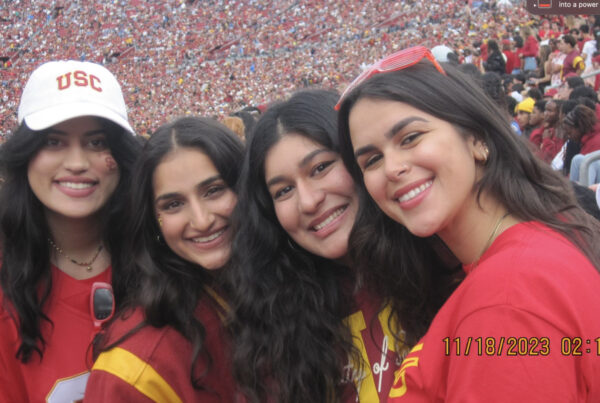This is a guest blog entry written by Jevon Torres. If you want to read more stories, visit viterbiadmission.usc.edu/blacklives.
My name is Jevon Torres, and I am a sophomore Computer Science/Business Administration major from Mount Laurel, NJ. Outside of classes, I am most involved in our school’s chapter of the National Society of Black Engineers, as well as our Black Student Assembly. Both of these organizations, alongside my academic interests aid my pursuit of furthering diversity efforts in fields where students like me have frequently been neglected and underrepresented.
I remember having just started 7th grade when I took a science test that I would never forget. After just a few weeks into the class, just getting settled in and beginning to learn lab procedures and other basic information, we were given an assessment to measure our memory and comprehension of the materials presented. It began smoothly, asking about some safety protocols but also starting to dive into the responsibilities of a scientist. Towards the end of the exam, I would have never expected to read the true/false statement: “Most scientists are male and white,” nor the baffling “correct” answer of “true”.
I was not nearly as offended or taken aback by the question and its inclusion as I should have been, or am now, but something about that sentence stuck with me from that day. Technology had always been a big part of my life even up to that early point, and my engineering interests had been spawned as well through those interests and some extracurriculars that I had explored. But, this day was what sealed the deal. I have always been extremely competitive and at times a contrarian, and naturally saw this as somewhat of a challenge: there might be a mold for what a scientist “looks like” now, but I am going to defy that standard.
Moving into high school, I started to fully realize these future interests. I immediately dove into the computer science courses that my school offered, as well as taking the most challenging math and science courses that I could stack on my plate. At the same time, I became involved with coding ventures in and outside school, such as client web development and a few personal exploration projects. I thought that I was beginning to find my niche, until part of the way through my freshman year. At our high school we were required to take a business class prior to graduation, and I figured that I would knock that requirement off very early. Thus, I took Accounting 1 and soon into the course, I could feel myself gaining interest in the business world as well. Going through high school, 1 year of Accounting became 2, which became 3, which became 4. I had completed the track, while continuing all of my engineering commitments and even picking up some business ones as well.

This left me with an interesting predicament come time for college applications. I knew that I could not go without engineering, in this case the major of Computer Science, but I also could not bear to leave behind my acquired interests in business. Looking from school to school, I came to the conclusion that something would have to go, unless I truly felt like immediately taking on the workload of them both. In came USC, the only program I found that would let me do exactly what I wanted to do, in a program designed to craft expertise in both engineering and business all in 4 years. Seeing that option already began to make me feel like USC was the place for me, and I hadn’t even applied yet.
Now that I have made my way from New Jersey to California, and completed my first year, I couldn’t be more confident in my decision to have applied and accepted a spot at USC. I have found my family, in classmates and alumni, who seem to always be offering to help out inside and out of the classroom. I am happy to say that I have put that true/false test question behind me: those at USC, in NSBE, in my courses, as my professors, have shown that while there is no perfect image of an engineer, I am well on my way to fitting in to the ever expansive fields of STEM.




